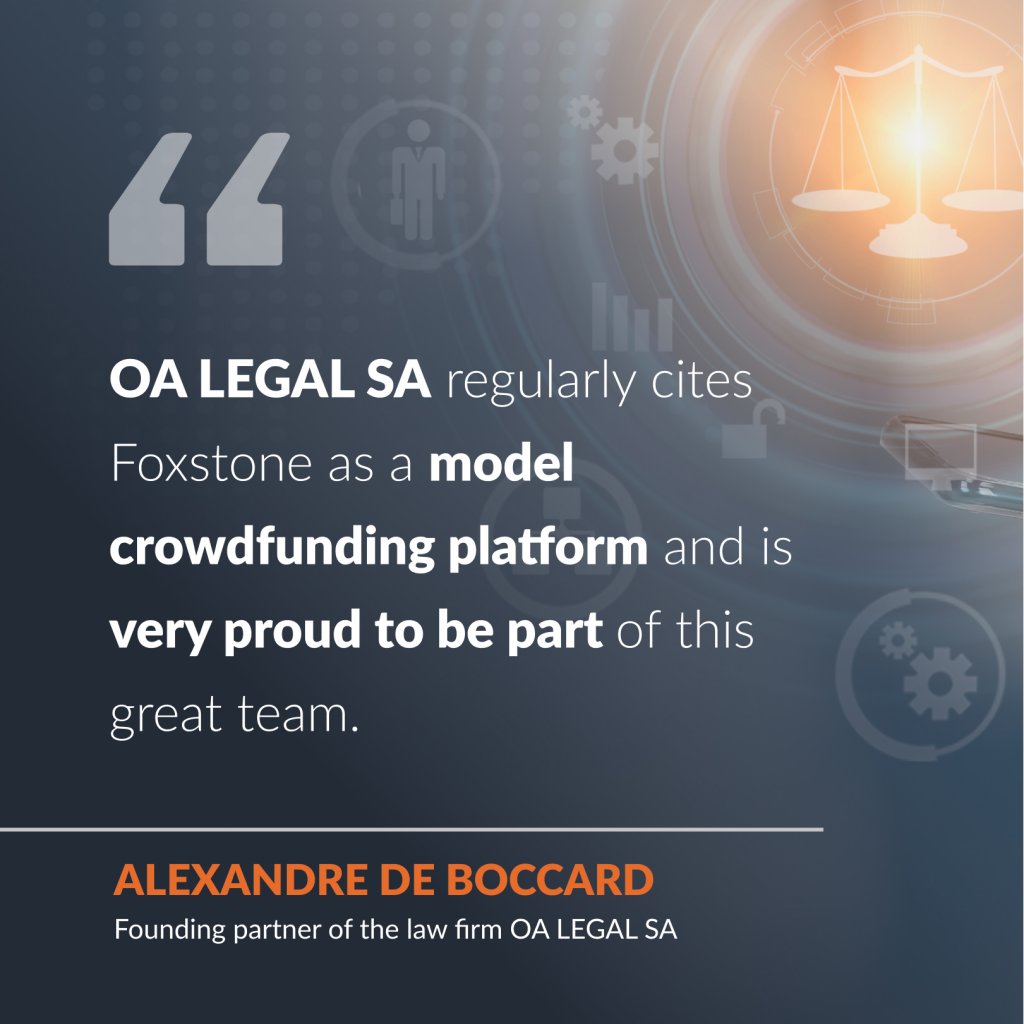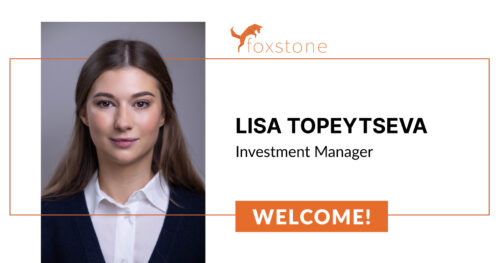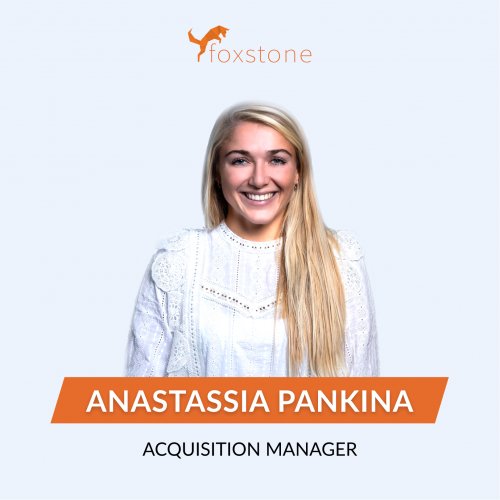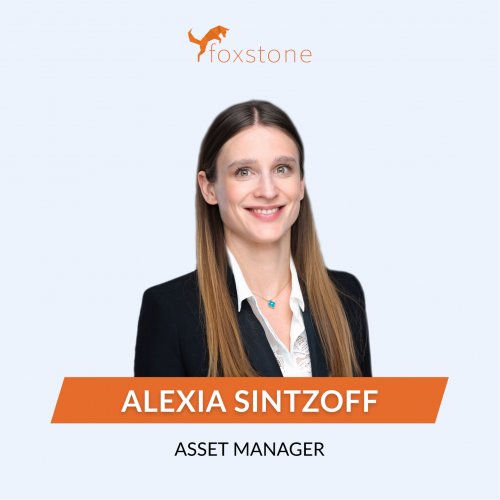Interview with Alexandre de Boccard, founding partner of the law firm OA Legal SA

Hello Mr. de Boccard, could you briefly introduce yourself?
Hello, I am a founding partner of the law firm OA LEGAL SA and president of the SCA (Swiss Crowdfunding Association), I advise (i) banks, (ii) financial institutions and (iii) financial service providers in the fields of financial law and new technologies, as well as (iv) FinTech, including crowdfunding platforms.
Could you summarize your career path for us?
After studying law in Switzerland and partly in the United States, I decided to specialize in financial market regulation. In 2006, I had the opportunity to work for the U.S. Securities & Exchange Commission (SEC) for a few months as part of a student program at Georgetown University (Washington D.C.).
In 2007, I had the honor of joining a team of lawyers specialized in financial law. In 2013, I joined the law firm of Ochsner & Associés (now OA LEGAL SA), in order to develop the banking & finance law practice.
Why did you choose to specialize in the finance and fintech sector?
When I started as a freelancer in 2013, it was the time when crowdfunding was booming in Switzerland. It was thanks to the French-speaking crowdfunding platforms, such as Foxstone, that I learned a lot about the subject.
What is your opinion on real estate crowdfunding?
Since the beginning of the crowdfunding boom in Switzerland, real estate has always had an important place. Real estate has probably brought confidence to investors compared to other crowdinvesting and crowdlending models (without real estate or other tangible underlying).
How do you perceive the evolution of the regulations regarding the new ways of investing in real estate?
Since the rise of crowdfunding platforms in 2014, the Swiss Authorities (including the Federal Department of Finance, FINMA and the Federal Chambers) have always positively supported this activity from a regulatory point of view, so as not to unnecessarily slow down the growth of crowdfunding.
What are the main benefits of tokenization in real estate?
Tokenization allows (i) to facilitate a purchase / a sale thanks to the configuration of the smart contract, which allows a simultaneous exchange and (ii) to reduce considerably the transaction costs. Generally speaking, in finance, the cost of the transaction is a decisive element.
How will blockchain revolutionize the real estate transaction of the future?
In the long run, if the land register operates on the basis of a blockchain (presumably private) or another digitalized form, transactions could be carried out “intra-day” with reduced transaction and registration costs in the (digitalized) register. One can imagine that notaries, for example, would intervene as “oracle” to validate real estate transactions.
How do you collaborate with Foxstone?
We have been collaborating with Foxstone on certain very technical legal aspects since its creation. I had the honor of getting to know Mr. Dan Amar in 2016, and accompanying him and his team in the very structuring of their business. Foxstone’s model was already extremely promising at the time and it has been very impressive to observe (up close) how the business has developed, in a very structured and institutional way, under the leadership of Mr. Dan Amar. The company was able to take the necessary time in the first two years to lay an extremely solid foundation in terms of its business models and investment process.
After our firm drafted the legal documentation for investment (in 2018), we had one of our (non-lawyer) employees test the underwriting process. The entire process took less than 10 minutes and no additional information had to be requested. For a direct investment in real estate, this was a first.
OA LEGAL SA regularly cites Foxstone as a model crowdfunding platform and is very proud to be part of this great team.
Many thanks to Alexandre de Boccard for agreeing to answer our questions.
For more information : OA LEGAL SA



